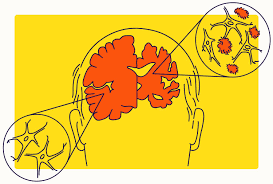
Young Bone Marrow Transplants Show Promise in Alzheimer's Research
Recent studies indicate that bone marrow transplants from younger mice can reduce signs of brain aging in older mice, suggesting potential new avenues for Alzheimer's disease treatment.
Researchers from the Third Military Medical University in Chongqing, China, conducted a study published in Science Advances. They found that older mice receiving bone marrow transplants from younger mice showed lower levels of neuronal degeneration, fewer behavioral deficits, and reduced amyloid-beta in their brains, a peptide linked to Alzheimer's disease.
The team hypothesized that younger hematopoietic stem cells, which create blood cells in bone marrow, might mitigate aging signs when transplanted into older mice. Their study aimed to explore the relationship between these younger stem cells and brain aging, particularly focusing on Alzheimer's disease markers.
Understanding the Mechanism
As people age, their hematopoietic stem cells lose diversity through a process called clonal hematopoiesis. This decline reduces the variety of immune cells the body can produce, making older individuals more susceptible to infections and potentially contributing to neurodegenerative diseases like Alzheimer's.
Dr. Rizwan Bashir, a neurologist at Acia Orthopedics, explained that Alzheimer's disease is closely linked to aging. "As we age, brain function declines due to cellular damage, oxidative stress, and reduced efficiency in clearing metabolic waste. This can lead to the buildup of amyloid-beta plaques and tau tangles, which are hallmarks of Alzheimer's," he said.
Research Findings
The researchers conducted their study using 9- and 2-month-old mice genetically engineered to model Alzheimer's disease. They transplanted bone marrow from younger mice into one group of older mice, while a control group received bone marrow from other older mice.
They found that bone marrow transplants from younger mice restored the expression of age-related genes in the older mice. These genes were linked to mitochondrial function, epigenetic regulation, and immune processes. The transplants improved mitochondrial function and restored the immune cells' ability to clear amyloid-beta, reducing its levels in the brain and blood of the older mice.
Additionally, older mice that received young bone marrow transplants showed lower levels of neuroinflammation, reduced neuronal loss, and improved cognitive behavior.
Ethical Considerations
Dr. Zachary Harvanek from Yale, who was not involved in the research, noted that the study indicated a systemic improvement in immune function due to the young bone marrow transplants. However, he cautioned against translating this procedure to humans, citing significant ethical concerns.
Performing bone marrow transplants on healthy humans to prevent aging-related diseases is considered too risky. Ethical issues include potential exploitation and inequity, particularly if younger donors are used for such procedures. Harvanek suggested exploring alternatives like heterochronic autologous transplants, where individuals use their own younger blood or bone marrow.
Identifying specific factors in the transplants that affect aging could lead to treatments without requiring full transplants, reducing ethical concerns. Nonetheless, access to these treatments could still raise important ethical questions.
While the findings offer hope for new Alzheimer's treatments, the ethical and practical challenges of translating this research to humans remain significant. Further research is needed to understand the underlying mechanisms and explore safer, more equitable treatment options.